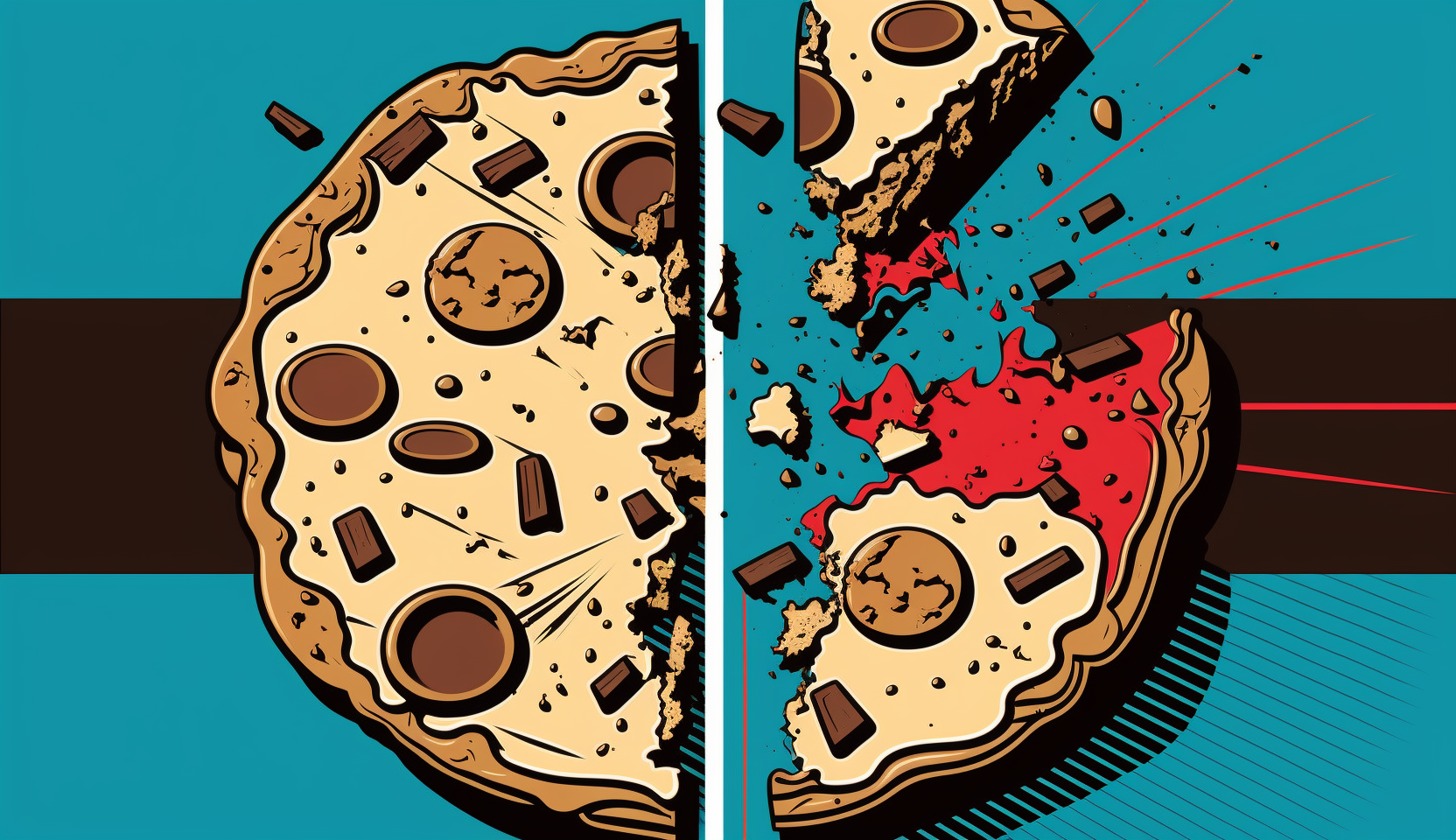Staying 1 Step Ahead: NEW Brand Loyalty Strategies with Blockchain-Driven Strategies

Moving Beyond Transactional Loyalty in Web3
Introduction to Brand Loyalty (Web3 vs Web2)
So…how important is brand loyalty?
Loyalty programs have successfully retained customers for decades, but they need to adapt to the Web3 world. Web2 loyalty programs were transactional, with customers earning points/miles for purchases and redeeming them for rewards. However, in Web3, loyalty programs are becoming more experiential and engaging. Customers now seek programs that offer exclusive events, early access to new products, and personalized experiences to extend their connection with brands.
According to research on brand loyalty, 80% of consumers prefer buying from brands that provide personalized experiences. Despite this, only 17% of marketers say they entirely use the data they have to create these experiences, as reported by Epislon.
Web3 Enables a More Open Approach to Loyalty Programs Than Web2
While single companies typically controlled loyalty programs in Web2–think Starbucks loyalty app, Web3 allows for building loyalty programs on accessible platforms, leading to a more decentralized system think Starbucks’ new loyalty platform ‘Odyssey‘. As a result, customers can gain greater control over their data and rewards.
So what does this mean for the future of strong Brand loyalty programs?
Cookie-Cutter Marketing is Broken For Younger Audiences
Well…most importantly, loyalty programs must evolve to meet customers’ needs in Web3. They need to be more experiential, personalized, and open–especially if marketers want to win the attention of younger generation. If they can do that, they’ll be well-positioned to succeed.

How to Build Loyalty (Three Must-Do’s):
Focus on experiences over rewards
In Web3, customers seek more than just points or miles. They want experiences that they can’t get anywhere else. For example, a loyalty program could offer customers early access to new products, exclusive events, or behind-the-scenes experiences.
Personalize the experience
In the era of Web3, customer expectations have evolved, and they now anticipate a higher degree of personalization in their interactions with brands. As a result, it is crucial for loyalty programs to harness data-driven insights to tailor the experience for each individual, cultivating deeper connections and fostering long-lasting customer relationships.
One such example of personalization in brand loyalty is acknowledging and celebrating a customer’s birthday. By collecting customer data, such as birth dates, loyalty programs can send timely and personalized messages, offers, or rewards to celebrate this special occasion. This thoughtful gesture demonstrates that the brand values the customer as an individual, creating a positive emotional connection and reinforcing loyalty.
To further enhance personalization, loyalty programs can employ advanced analytics and machine learning algorithms to understand better customer preferences, behavior patterns, and purchase history. This in-depth analysis allows businesses to create highly targeted offers, incentives, and experiences that truly resonate with their customers. By meeting and exceeding customer expectations through tailored engagement, companies can solidify their brand loyalty, gain a competitive edge, and drive sustainable growth in the Web3 landscape.
Make the program more open + decentralized
In Web3, customers want more control over their data and rewards. Brand loyalty programs can build on open platforms to create a more distributed system. Blockchain-based loyalty programs of the future would allow customers to own their data and choose how to redeem their rewards.
By evolving to meet customers’ needs in Web3, loyalty programs can stay relevant and continue to drive customer engagement and let the people lasso it back in and take control of their own data.
The benefits of Web3 loyalty programs for Consumers
There are many benefits of brand loyalty that Web3 loyalty programs can offer both customers and businesses.
For customers, Web3 loyalty programs can offer more, more more!
For example:
More control over their data
In Web3, customers possess their data, allowing them to decide its usage and accessibility. This ownership presents a considerable benefit compared to traditional loyalty programs that frequently collect and use customer data without permission.
More personalized experiences
Web3 loyalty programs can use data to personalize the experience for each customer. For example, this incentive could include offering tailored rewards and recommendations or acknowledging a customer’s birthday. This level of personalization is not possible with traditional loyalty programs, but in Web3 marketers will even more aggressively work to tailor experiences to their consumers.
More reward options
Web3 loyalty programs can provide a broader range of rewards than traditional ones, including NFTs, cryptocurrency, and real-world experiences. In addition, the diversity in offerings from Web3 loyalty programs increases the likelihood of customers discovering rewards that pique their interest.

The benefits of Web3 loyalty programs for Businesses
Increased customer engagement
Web3 loyalty programs empower businesses to elevate customer engagement by offering highly customized experiences and diverse reward options, all facilitated through decentralized technologies. By leveraging data-driven insights, companies can create personalized offers and incentives that resonate with their customers, encouraging repeat purchases and increased spending.
Moreover, these next-generation loyalty programs foster an emotional connection between customers and brands by prioritizing transparency, security, and user control, which are vital factors that contribute to loyalty. As customers feel valued and understood, their affinity towards the brand grows, leading to stronger long-term relationships and sustained business growth. In this way, Web3 loyalty programs serve as a powerful tool for businesses to thrive in the competitive landscape of the digital age. The result? Increased spending and brand loyalty among customers.
Improved data collection
In contrast to conventional Web2 loyalty programs, Web3-based loyalty systems offer a significantly more secure and transparent method for collecting customer data. In addition, by leveraging the unique capabilities of decentralized technologies, such as blockchain, these next-generation programs can ensure the integrity and reliability of collected data. As a result, businesses can utilize this high-quality data to fine-tune customer experiences, tailor personalized offers, and implement highly targeted marketing strategies that resonate with their audience.
Reduced LTV costs
Web3-based loyalty programs boast increased cost-efficiency compared to their traditional counterparts, primarily due to the reduced need for extensive infrastructure and maintenance. By leveraging decentralized technologies and cutting-edge digital solutions, these next-generation programs minimize overhead costs and streamline operations.
As the world transitions to Web3, loyalty programs are expected to evolve in line with this trend, becoming increasingly decentralized and focusing on immersive, personalized experiences. Brands that adapt and embrace these advancements will be strategically positioned to thrive in the competitive landscape, setting themselves apart by delivering exceptional value and fostering long-lasting customer relationships.
What does this mean for the future of loyalty programs?
The future of loyalty programs is poised to be shaped by decentralization, experiential engagement, and personalization, driven by the rapid adoption of Web3 technologies. As a result, brand loyalty, a customer’s commitment and preference for a particular brand based on trust, satisfaction, and positive experiences will become increasingly vital in this new landscape. By embracing these transformative changes, businesses can enhance their customer experience and foster stronger brand loyalty, setting themselves apart from competitors and ensuring long-term success in an ever-evolving digital landscape.The future of loyalty programs is likely to be decentralized, experiential, and personalized. Businesses that embrace these changes will be well-positioned to succeed in the years to come.
Learn More about the Keyspace Studio Platform in the video below:
